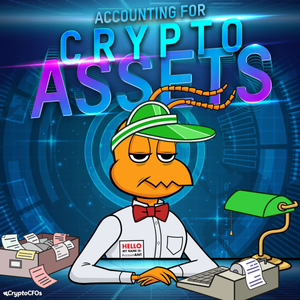
Fundamentals: Enterprise Custody Solutions
12/22/22 • 3 min
While seemingly counterintuitive to the ethos of blockchain and cryptocurrencies, enterprise custody solutions can serve a purpose for high-net-worth (HNW) individuals who prefer a third party to hold and maintain custody of their crypto assets.
Companies like Ledger, Kraken, and Coinbase offer custody services for HNW and Ultra-HNW individuals, estates, and companies. These solutions are generally cost-prohibitive for the average investor.
For many public figures within the crypto space, their mere participation in the industry can put a target on their back, as a would-be thief may assume that the individual has access to the location of their private keys or seed phrase.
The main advantage of these services is similar to that of a multisig wallet, as it removes a single point of failure in the event of a robbery or if the holder is taken hostage, with the ransomers demanding they turn over the keys to their crypto. The disadvantage is that you are again relying on the security protocols of a third party. Also, if you’re a crypto “whale,” hire bodyguards!
While seemingly counterintuitive to the ethos of blockchain and cryptocurrencies, enterprise custody solutions can serve a purpose for high-net-worth (HNW) individuals who prefer a third party to hold and maintain custody of their crypto assets.
Companies like Ledger, Kraken, and Coinbase offer custody services for HNW and Ultra-HNW individuals, estates, and companies. These solutions are generally cost-prohibitive for the average investor.
For many public figures within the crypto space, their mere participation in the industry can put a target on their back, as a would-be thief may assume that the individual has access to the location of their private keys or seed phrase.
The main advantage of these services is similar to that of a multisig wallet, as it removes a single point of failure in the event of a robbery or if the holder is taken hostage, with the ransomers demanding they turn over the keys to their crypto. The disadvantage is that you are again relying on the security protocols of a third party. Also, if you’re a crypto “whale,” hire bodyguards!
Previous Episode

Fundamentals: Multisig Wallets
Multisig wallets require multiple signatures (multiple wallets approving the transaction) to sign or confirm transactions and can be secured with either a hot or cold storage wallet. This method provides for much greater security as there is no one single point of failure. A multisig wallet secured via cold storage is the gold standard for security with crypto assets, but this protection comes at the expense of convenience. This type of storage should be employed for large asset balances that are kept for longer time frames.
Next Episode

Fundamentals: Coins vs. Tokens
Coins and tokens form two major types of cryptocurrencies.
Coins are cryptocurrencies with their own native blockchain networks (Ether/ETH, Bitcoin/BTC, and Litecoin/LTC). These coins are the result of years of coding and building a robust and secure blockchain network that requires decentralized computing power to secure. As a result, coins are more difficult to create because they require entire networks to support their use and value proposition. Coins are rewarded to those who supply computing power for processing transactions and are generally used as the fuel for the transactions that are processed on that chain. For example, to execute a transaction on the Ethereum blockchain, you spend ETH as “gas” to fuel the transaction. The amount of gas required to execute the transaction depends on network congestion, the complexity of the action, and the speed necessary for confirmation.
Tokens are cryptocurrencies that are created on top of existing blockchains. Since they do not require the infrastructure backing them, they are much easier to create; therefore, there are exponentially more cryptocurrency tokens than coins. One of the most common types of tokens are NFTS, which can be minted on a multitude of different blockchains including Ethereum, Solana, and Flow, just to name a few. NFTs can act as digital certificates of ownership that can be instantly verified and validated. Because tokens do not have the inherent utility of being gas on their native blockchains, they generally have a utility component that gives them value such as being a rare piece of art or music, gaining the holder access to discounts or events, or possessing a governance component.
If you like this episode you’ll love
Episode Comments
Generate a badge
Get a badge for your website that links back to this episode
<a href="https://goodpods.com/podcasts/accounting-for-crypto-assets-481294/fundamentals-enterprise-custody-solutions-64393804"> <img src="https://storage.googleapis.com/goodpods-images-bucket/badges/generic-badge-1.svg" alt="listen to fundamentals: enterprise custody solutions on goodpods" style="width: 225px" /> </a>
Copy




